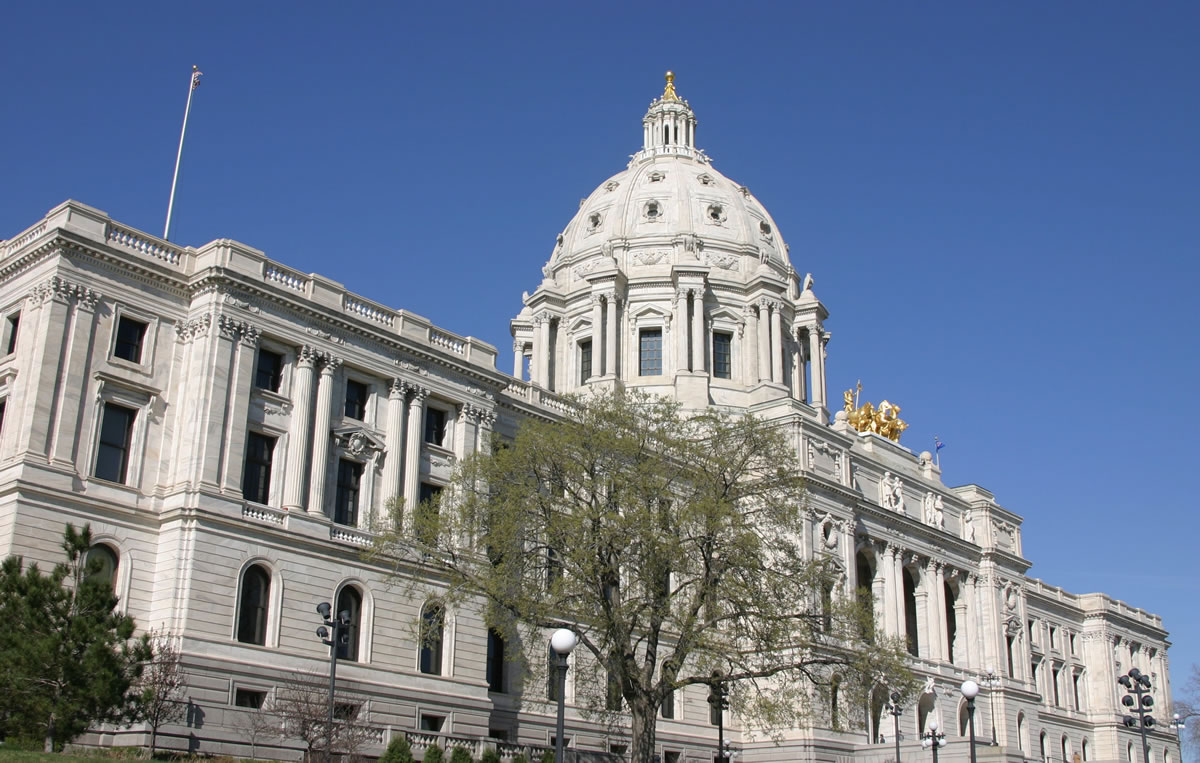

Share
State and local officials are taking unprecedented steps to prevent the novel coronavirus from spreading in Minnesota. While the effectiveness of those measures remains to be seen, it’s already clear the COVID-19 pandemic is not just a public health crisis, but an economic one as well.
Yesterday the state’s highest-ranking labor leaders sent Gov. Tim Walz and legislative leaders a to-do list of policy changes necessary, they say, to protect working people on the front lines of the pandemic response and those likely to suffer most from its impact on Minnesota’s economy.
In the letter, the Minnesota AFL-CIO’s executive officers, President Bill McCarthy and Secretary-Treasurer Brad Lehto, back higher standards to ensure hospitals and fire departments provide adequate personal-protective equipment to nurses and first responders. They urge an extension of unemployment-insurance benefits and paid time off. And they call on lawmakers to pass bills guaranteeing school districts’ hourly employees get paid during closures and putting tradespeople to work.
The letter also includes a warning: “Emergencies shouldn’t be an excuse to relax labor standards. Do not allow rollback of any labor rights or protections.”
The dizzying number of demands included in the letter reflects the all-encompassing nature of the pandemic and efforts to combat it. Unions from all industries, from the public and private sectors, were bracing for the fallout – and scrambling to address members’ economic and health concerns.
Kelly Gibbons, president of Service Employees International Union Local 284, called the last week “quite the nightmare.”
Local 284 represents about 10,000 workers in 140 school districts statewide. Although Walz has ordered all schools to close through March 27, some Local 284 members are still reporting to work, helping provide care for elementary-age children of health care workers and first responders. Other members are furloughed with pay – for the time being.
“There’s been a lot of confusion, but we’ll get through this,” Gibbons said. “We know this will pass.”
In the days after he declared a statewide emergency last week, Walz ordered schools, restaurants, museums and other public spaces to close, hoping to limit community spread of the virus and prevent a surge of hospital visits due to COVID-19. But the governor also moved to ease the financial strain on working people impacted by those measures.
In an executive order Monday, Walz made the state’s unemployment insurance program more robust, waiving certain restrictions and waiting periods so that anyone whose paycheck takes a hit from the pandemic – from layoffs, furloughs or schedule cuts – has swift access to relief.
Walz also called on businesses that remain open during the pandemic to do their part to prevent its spread by making it easier for employees to work from home and, critically, stay home with pay when feeling sick. Leading by example, Walz granted emergency paid leave to any state employee impacted by the pandemic, and he suspended the waiting period typically required of new hires before they can enroll in health insurance coverage.
That’s good news for many members of AFSCME Council 5, which counts state employees among its 43,000 members statewide. But Executive Director Julie Bleyhl said all Minnesota employees deserve the same guarantees.
“AFSCME Council 5 is demanding that all employers in the state of Minnesota pay their workers in full during this time of crisis,” she said. “We must all be united and work together to ensure that no worker has to choose between their lives and a paycheck.”
The Minnesota AFL-CIO, in its letter to Walz and legislative leaders, called on the state to mandate that employers provide 15 days of emergency paid time off to all employees, and that school districts continue to pay furloughed employees, who are not eligible for unemployment insurance, for all scheduled days.
“To avoid impacting small businesses for 15 days off, we are calling on the state to implement a separate tax on the largest businesses in the state including Amazon, U.S. Bank, Wells Fargo, Target, Ecolab and others, and small to medium sized businesses can apply for a tax credit equal to 100% of the paid sick leave benefit they have paid out,” the letter reads.
Other union demands – like a robust infrastructure jobs bill and extending unemployment benefits to a full year – look to soften the blow to Minnesota’s economy in the long term.
A statement issued by the Minnesota Building and Construction Trades Council argues a strong bonding bill, with investments in roads, bridges, transit and public buildings, would “be the economic stimulus needed to jump start the economy, and especially the construction industry, after the worst of the coronavirus impacts have passed.”

